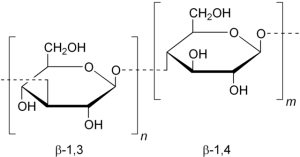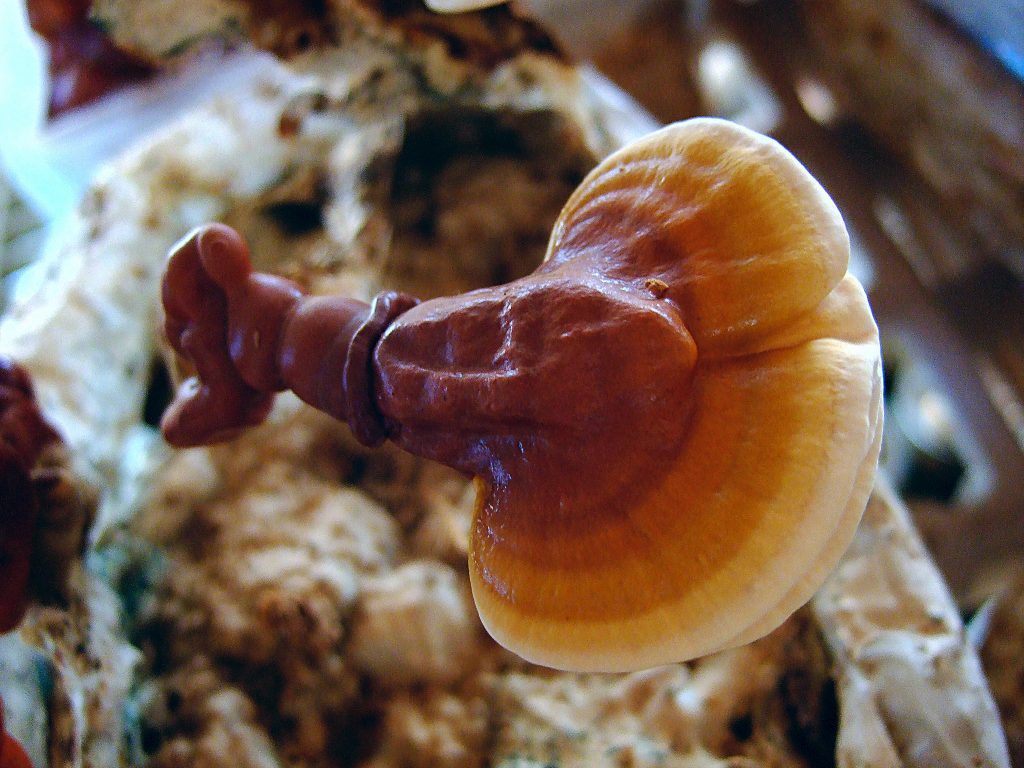Yeast-derived beta-glucan is an effective immune system booster.

- Boosting immune function. The body treats beta-glucan as a foreign substance, which leads to an immunostimulatory response.
Overview
Beta-glucans are fiber compounds found in the cell wall of bacteria, yeast, fungi, algae, and some plants. Historically, beta-glucan-containing mushrooms such as Japan’s shiitake and China’s reishi have been utilized in traditional Asian medicine.
Modern research confirms that beta-glucans have a variety of health effects, including lowering cholesterol and blood pressure, weight loss, wound healing, antioxidant activity, and boosting immunity.
Although all beta-glucans share a similar structure, their biological effects and potency can vary depending on their source. So far, it appears that beta-glucans derived from yeast possess the most potent immune-boosting activity.

How Beta Glucan Might Help With Immunity
Stimulating immune function
Beta glucans are recognized as a foreign substance by the body. Because of this, the immune system reacts with a chain of immune responses including phagocytosis, production of cytokines, and increased activity of immune cells including neutrophils, macrophages, and natural killer cells. As a result the immune system is stimulated and better prepared to fight infections and illnesses. 1
Beta Glucan Uses & Benefits for Immunity
Betan-glucan is a popular dietary supplement for boosting immune function and warding off cold and flu infections in particular. Whereas other popular immunity boosters such as Vitamin C have inconclusive research evidence, beta-glucans are backed by dozens of successful research studies.
A number of studies show that beta-glucan can also improve immunity and reduce chances of upper respiratory infections (URIs) following strenuous exercise. 2 3
Research
Animal Research
Animal investigations of the beta glucan’s immunity-modulating effects indicate that it can:
- Stimulate immune activity. Rats given beta-glucan show improved phagocytic activity, gammaglobulin levels, improved oxidative metabolism in immune cells, and other markers of enhanced immune function.4 5
- Decrease inflammation. Dogs with IBD supplemented with beta-glucan saw an improvement of symptoms and reduction in the pro-inflammatory cytokine IL-6 alongside a rise in the anti-inflammatory cytokine IL-10. 6
- Improve microbial defenses. Beta glucan has been shown to enhance the anti-microbial activities of human leukocytes in isolated blood, and improve the clearance of bacterial infections in rats. 7 8
Human Research
Clinical trials of beta glucan report promising findings.
Yeast beta-glucan appears to reduce upper respiratory symptoms
This study examined the effects of beta-glucan on upper respiratory infections (URIs) and mental well-being. Seventy-seven women with moderate stress were given placebo or a beta-glucan supplement (Wellmune, 250 mg) daily for 12 weeks. Women taking Wellmune had fewer URI symptoms, better mood, and energy levels.
- The researchers concluded that “…supplementation with Wellmune reduces upper respiratory symptoms and improves mood state in stressed subjects, and thus it may be a useful approach for maintaining immune protection against daily stressors.”9
Yeast beta glucan may improve cold infections
This placebo-controlled, double-blind, randomized study tested the effects of beta-glucan on the common cold. One hundred people were given placebo or yeast betan-glucan daily for 26 weeks. Compared to placebo, the beta-glucan group had less people with a common cold episode (38 vs 48), less infections during the height of the infection season, and less severe symptoms.
- The researchers concluded that “The present study demonstrates a prophylactic effect of yeast beta-glucan on the occurrence of common colds as opposed to placebo.“10
Yeast beta glucan seems to improve colds
In this placebo-controlled, double-blind, randomized study, 162 people were given placebo or insoluble yeast beta-D-glucan daily for 16 weeks to test its effects on cold infections. People in the beta-glucan group had 25% fewer cold infections, a 15% lower symptom score, and had less difficulty with sleep during their colds.
- The researchers concluded that “…yeast beta-glucan preparation increased the body’s potential to defend against invading pathogens.“11
Beta glucans appear to reduce inflammation
This randomized, double-blind, placebo-controlled, crossover study tested the anti-inflammatory properties of beta-D-glucans. Twelve obese or overweight individuals were given placebo or BDG capsules daily for 4 weeks, and switched groups 4 weeks later. Taking BDG resulted in increased levels of the anti-inflammatory cytokine IL-10.
- The researchers concluded that “Increased IL-10 after BDG consumption might be a contributing factor to the known beneficial effects of dietary fiber intake.“12
Dosage for Immunity
- Successful studies does not list a consistent dosage, but tend to use yeast-derived beta glucans
- Beta glucan supplements come in doses of 100 – 500 mg
- General dosage for beta glucans is 250 mg
- Look for supplements that mix Beta 1,3 and Beta 1,6 glucans, since these are derived from yeast
Supplements in Review Says
- Beta-glucan as beta 1,3 and beta 1.6, 250 – 500 mg daily for immunity.
We recommend beta glucan for acute respiratory infections. Most people take immune boosters for protection against colds and flu, and beta-glucan has been demonstrated to be an effective compound for these and other upper respiratory infections.
Make sure to get yeast-derived beta-glucan. Yeast beta-glucan (containing beta 1,3 and beta 1,6 glucans) is the only form with proven immunostimulatory effects.
Leave a Reply